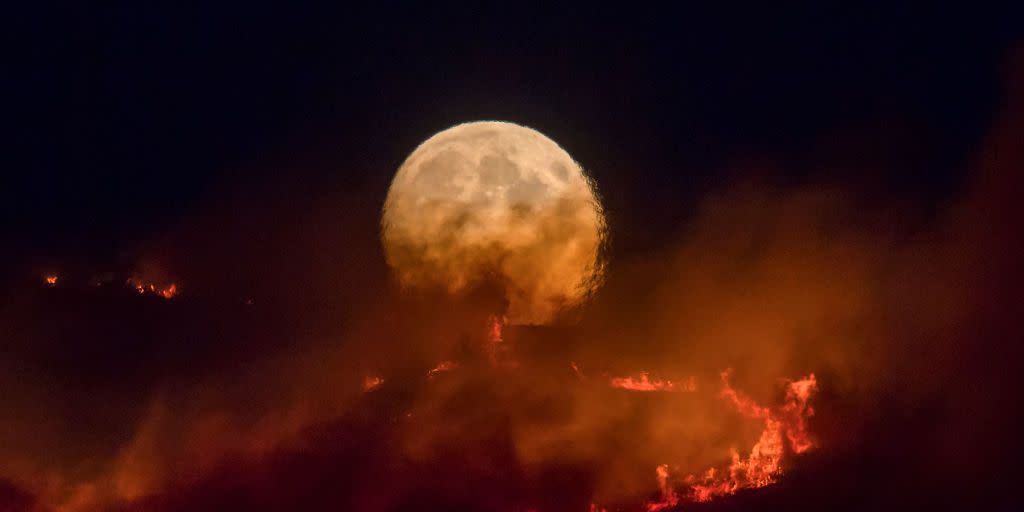Only 12 Years To Save The World: Explaining That Terrifying Global Warming Report

Between the baking summer and Michael Gove suggesting people rummage through each other's bins for reusable scraps after Brexit, the sense that we're heading for a Mad Max dystopia is pretty unavoidable. Now a new report from the UN's Intergovernmental Panel on Climate Change has shown how close we are to complete ecological collapse.
It's looking bad. In fact it's very, very, very, very bad. The report says that we're miles off keeping global temperature rises below 1.5 degrees centigrade and are heading for a rise of closer to three degrees without "rapid, far-reaching and unprecedented changes in all aspects of society", and that we've got as little as 12 years to try and sort it out before everything falls apart. Happy Monday. Here are the report's other cheery take-homes.
Two degrees of warming is way too much, it turns out
That level of warming would be disastrous for a lot more wildlife than 1.5 degrees - the coral reefs would be completely gone at two degrees of warming, for instance - and sea levels would rise by 10 centimetres, meaning an extra 10 million people would be affected by flooding compared to warming of 1.5 degrees. That would also affect our ability to grow crops like wheat, maize and rice, meaning famines and refugee crises would be much more likely.
We're running out of time much more quickly than we thought
We could barrel through the 'guard rail' figure of 1.5 degrees in as little as 12 years, with the report stating that emissions need to drop by 45 percent by 2030 compared to 2010 levels if we're to stand a chance. Plans to reduce emissions need to be drastically sped up, with the aim of making the world carbon neutral by 2047 to give us a two-thirds chance of keeping warming below 1.5 degrees. Between 100 and 1000 billion tonnes of carbon needs to be captured from the atmosphere too, which the report suggests could be done by implementing carbon capture tech and replanting forests, as well as roughly 7 million square kilometres of 'energy crops' to make biofuels. That's an area just slightly smaller than Australia.
It's going to cost governments a wedge
The report suggests countries will need to budget 2.5 percent of GDP for two decades to completely retool industry and society for a fossil-free future. The overall worldwide investment in energy is put at roughly $2.4 trillion a year.
Coal is over
One of the key recommendations in the report is to phase coal out of the energy industry much more quickly than previously imagined, and that renewable energy sources need to make up 85 percent of global electricity in the next 30 years. Three of the UK's seven coal-fired power stations are currently expected to continue running as they are, though the others are converting to biomass or closing altogether.
Why hasn't enough been done?
It's partly down to a shift to the political right around the world - think of Trump dismantling Obama-era emission controls and threatening to withdraw from the Paris climate accords, or Brazilian presidential hopeful Jair Bolsonaro and his plan to open the Amazon rainforest to agribusiness, or Australian prime minister Scott Morrison saying that he's "not going to spend money on global climate conferences and all that nonsense". Great.
('You Might Also Like',)

